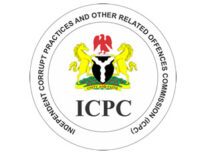Foremost Anti-corrupt group, Human and Environmental Development Agenda (HEDA Resource Centre) has commended the Economic and Financial Crimes Commission (EFCC) on its appeal of the recent judgment of the Court of Appeal, Abuja judicial division.
The Court discharged former Governor of Jigawa State, Alh. Sule Lamido, and his two sons, Aminu and Mustapha Lamido, of corruption and money laundering charges on the grounds that the prosecution had filed the charge at the wrong judicial division of the Federal High Court.
Earlier, the EFCC had charged the former Governor and his two sons with money laundering offenses at the Abuja judicial division. After presenting six witnesses, the anti-graft agency closed its case, and the defendants subsequently filed a no-case submission. However, Justice Ojukwu of the Federal High Court dismissed the no-case submission, ruling that the defendants had a case to answer. Dissatisfied with the ruling, the defendants decided to appeal to the Court of Appeal.
A panel of three jurists, led by Hon. Justice Adamu Waziri, reviewed the case and concluded that the money laundering charge should have been filed in Jigawa State, where the alleged offenses were committed. Based on this finding, the Court of Appeal discharged the defendants.
In response to the judgment, HEDA Resource Centre’s Chairman, Olanrewaju Suraju, expressed concerns, citing a precedent set by the Supreme Court in the case of Dele Belgore. In the Belgore case, the Supreme Court also overturned a no-case submission ruling by the Federal High Court. However, unlike the Lamido case, the Supreme Court ordered the case to be re-filed and prosecuted in the appropriate judicial division, which was Kwara State.
Suraju also highlighted another relevant case, that of Senator Orji Uzor Kalu & Ors, wherein the Supreme Court overturned the judgment of the Federal High Court due to jurisdictional issues. In that case, the Supreme Court ordered a re-trial of the defendants, instead of discharging them.
He stressed that an appellant whose appeal is based on an application or an interlocutory appeal, and not on the final judgment of the trial court, should not be discharged by the appellate court. Such discharges could set a wrong precedent, suggesting that technical errors may lead to acquittal.
Suraju therefore called on the EFCC, as the prosecutor, to pursue further appeal at the Supreme Court. He emphasized that Nigerians cannot afford a precedent that fails to ensure consequences for money laundering, corruption, and misappropriation of public funds.
The EFCC’s response and the potential implications of further appeal will be closely watched, as the case involves high-profile individuals and raises important questions about the judicial process surrounding corruption cases in Nigeria.






